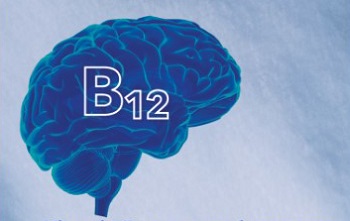Nikhil Prasad Fact checked by:Thailand Medical News Team Jun 24, 2024 1 year, 8 months, 1 week, 4 hours, 33 minutes ago
Mental Health Updates: Mental disorders such as anxiety and bipolar disorder affect millions of people worldwide, often leading to significant personal and societal burdens. Recent research by scientists from the Chinese Center for Disease Control and Prevention, Beijing-China, Inner Mongolia Medical University-China, China Medical University, Shenyang-China and Baotou Medical College-China that is covered in this
Mental Health Updates report, sheds light on the complex relationship between vitamin B12 levels and these mental health conditions, suggesting that higher levels of this vitamin may increase the risk of anxiety and bipolar disorders.
 Vitamin B12 - A Double-Edged Sword for Mental Health
Understanding Mental Disorders
Vitamin B12 - A Double-Edged Sword for Mental Health
Understanding Mental Disorders
Mental disorders encompass a range of conditions that affect cognition, emotional regulation, and behavior. Common mental disorders include depression, anxiety disorders, bipolar disorder, obsessive-compulsive disorder (OCD), and schizophrenia. These conditions can lead to significant distress and impairment in daily functioning, highlighting the importance of effective prevention and treatment strategies.
The Role of B Vitamins
B vitamins, including folate (vitamin B9), vitamin B6, and vitamin B12, play crucial roles in maintaining brain health. These vitamins are essential for the production of neurotransmitters, which are chemicals that transmit signals in the brain. A deficiency in any of these vitamins can lead to elevated levels of homocysteine, a compound associated with increased risk of mental disorders due to its neurotoxic effects.
The Study: Exploring the Link
A recent study aimed to uncover the potential causal relationship between serum levels of B vitamins, homocysteine, and the risk of mental disorders. Researchers used a method called Mendelian randomization, which leverages genetic data to infer causal relationships. This approach helps to address limitations of traditional observational studies, such as confounding factors and reverse causation.
Key Findings
The study found suggestive evidence that higher serum levels of vitamin B12 are associated with an increased risk of anxiety and bipolar disorders. Specifically, individuals with higher genetic predisposition to elevated vitamin B12 levels showed a higher likelihood of developing these mental health conditions. However, no significant causal relationship was found between folate, vitamin B6, homocysteine, and other mental disorders.
Why Vitamin B12 Matters
Vitamin B12 is essential for brain function and overall neurological health. It helps in the production of DNA, the formation of red blood cells, and the maintenance of the nervous system. Deficiencies in vitamin B12 can lead to various health issues, including neuropsychiatric symptoms such as depression, anxiety, and cognitive decline.
The Double-Edged Sword
While maintaining adequate levels of
vitamin B12 is crucial for health, the study's findings suggest that excessively high levels may have adverse effects on mental health. This paradox highlights the importance of balance in nutrient intake and suggests that more is not always better when it comes to vitamins.
Practical Implications
These findings have important implications for the prevention and treatment of mental disorders. Healthcare providers should monitor vitamin B12 levels in patients, particularly those with a history of anxiety or bipolar disorder. While supplementation may be necessary for those with deficiencies, it is essential to avoid excessive intake and to consider individual patient needs.
Caution with Supplementation
Vitamin B12 supplementation should be approached with caution. Over-the-counter supplements can lead to high serum levels, which might contribute to an increased risk of anxiety and bipolar disorders. Healthcare providers should tailor supplementation recommendations based on individual blood levels and overall health status.
Future Directions
The study underscores the need for further research to validate these findings and explore the underlying mechanisms. Large-scale randomized controlled trials and studies involving diverse populations are necessary to fully understand the impact of vitamin B12 on mental health.
Addressing the Complexity
Mental health is influenced by a myriad of factors, including genetics, environment, and lifestyle. Future research should take a holistic approach, considering all these elements to develop effective prevention and treatment strategies.
Conclusion
This study provides valuable insights into the complex relationship between vitamin B12 and mental health. While maintaining adequate levels of this vitamin is essential for brain function, excessively high levels may increase the risk of anxiety and bipolar disorders. Healthcare providers should carefully monitor and manage vitamin B12 levels in patients to optimize mental health outcomes.
Further research is needed to confirm these findings and to develop comprehensive guidelines for vitamin supplementation in the context of mental health.
The study findings were published in the peer reviewed journal: Nutrients.
https://www.mdpi.com/2072-6643/16/13/1986
For the latest
Mental Health News, keep on logging to Thailand Medical News.
Read Also:
https://www.thailandmedical.news/news/japanese-case-study-shows-new-onset-of-schizophrenia-in-adolescent-post-covid-19
https://www.thailandmedical.news/news/new-insights-into-brain-cells-and-mood-disorders
https://www.thailandmedical.news/news/breaking-news-blood-biomarkers-for-depression-discovered-a-breakthrough-in-psychiatric-diagnosis
